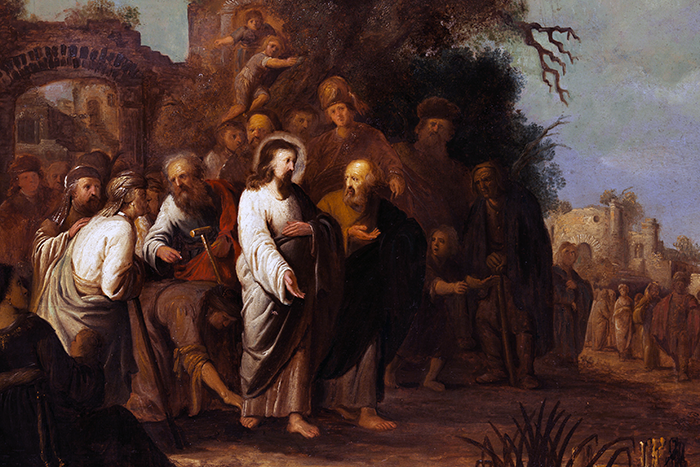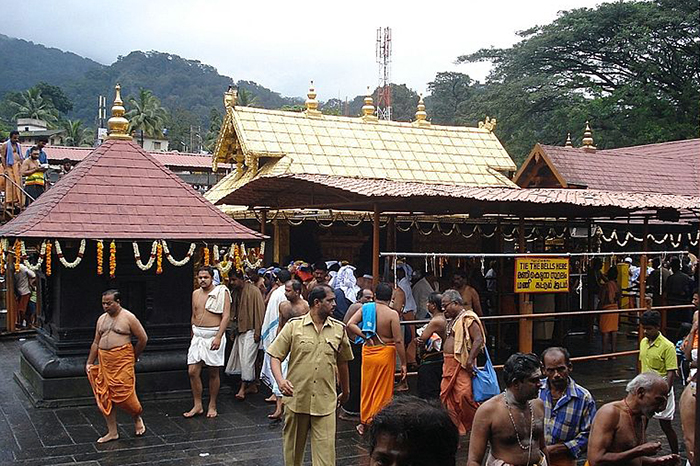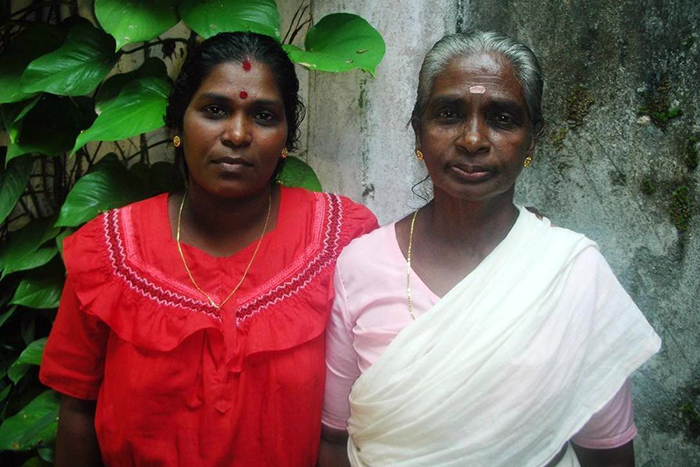12年もの間、出血が止まらなかった女が癒やされる場面(ルカ8:43~48)を読むとき、私はいつも驚きを覚える。
[toggle]I am always amazed when I read the story of Jesus healing a woman who had suffered from a hemorrhagic condition for 12 years. [/toggle]
レンブラント学派「イエスによる出血の続く女の癒やし」(部分)
おそらくこの物語を覚えておられるだろう。たまたまイエスは彼女を癒やした。もしイエスに触れられたら癒やされると彼女が信じたからだ。彼女は群衆の中でイエスの背後に近づき、手を伸ばしてイエスの服の房に触れた。彼女の判断は正しかった。その瞬間に出血は止まったのだ。彼女は黙って立ち去ることもできたが、イエスはその時、何が起こったかをご存じだった。
[toggle]You probably remember the story because, well, Jesus healed her by accident: believing that if she touched him she would be healed, the woman crept behind Jesus in the middle of a crowd and reached for his cloak. She was right: in that very instant her bleeding stopped. And she would have gotten away with it, except Jesus knew what had just happened: [/toggle]イエスは、「わたしに触れたのはだれか」と言われた。
[toggle] ‘Who touched me?’ Jesus asked. [/toggle]人々は皆、自分ではないと答えたので、ペトロが、「先生、群衆があなたを取り巻いて、押し合っているのです」と言った。
[toggle]When they all denied it, Peter said, ‘Master, the people are crowding and pressing against you.’ [/toggle]しかし、イエスは、「だれかがわたしに触れた。わたしから力が出て行ったのを感じたのだ」と言われた。
[toggle]But Jesus said, ‘Someone touched me; I know that power has gone out from me.’ [/toggle]女は隠しきれないと知って、震えながら進み出てひれ伏し、触れた理由とたちまちいやされた次第とを皆の前で話した。イエスは言われた。「娘よ、あなたの信仰があなたを救った。安心して行きなさい」
[toggle]Then the woman, seeing that she could not go unnoticed, came trembling and fell at his feet. In the presence of all the people, she told why she had touched him and how she had been instantly healed. Then he said to her, ‘Daughter, your faith has healed you. Go in peace,’ (Luke 8:45-48). [/toggle]
ぱっと読んだ感じだと、これはイエスが起こした多くの奇跡の一つにしか見えないかもしれない。しかし、それだけではなさそうだ。この物語を理解するには、その歴史背景を考える必要がある。
[toggle]At first glance this may seem like one of many stories of Jesus’ miracles, but there’s something else going on here. To understand it, we have to dive into the story’s historical context. [/toggle]レビ記の律法(15:19~30)によれば、出血のある女性は、それが生理によるものであれ、病によるものであれ、汚れた存在とされた。しかも、彼女が触れたものは、寝床であれ、人であれ、同じく汚れたものとされたのだ。彼女に触れた人間が清くなるには、衣服を水洗いして身を洗い、汚れがなくなる夕方まで待つ必要があった。彼女自身や、接触の多い夫に関しては、そのプロセスはさらに複雑なものとなる。
[toggle]According to Levitical law, any woman who had a blood flow — whether due to her menstrual cycle or illness — was ceremonially unclean. In fact, anything the woman touched, from her clothes to the bed she slept on, and anyone who came in contact with her also became unclean. To be declared clean, a person who had come in contact with the woman would have to wash his or her clothes, bathe and wait until evening, when the impurity status was lifted. For the women — and her husband if they had intimate relations — the process was more elaborate. [/toggle]彼女は出血が止まってから7日間待ったうえ、8日目に献げ物を持って祭司のもとを訪れなければならなかった。その必要な儀式が終わってようやく、彼女は清さを取り戻せたのだ。
[toggle]She would have to count seven days after the bleeding stopped, and then on the eighth day present herself to the priest with an offering. After the necessary rites were performed, she would finally be declared clean. [/toggle]このことを考えれば、なぜ彼女がコソコソとしていたのかが分かる。彼女がイエスに触れれば、イエスも汚れたものとなり、彼女が問い詰められることになるからだ。しかし、ルカが証言しているとおり、そこには奇跡が起こった。イエスが汚れるのではなく、むしろ彼女が清くされたのだ。
[toggle]Now we can understand the reason for the woman’s surreptitious plan. If she touched Jesus, making him unclean, she would be in serious trouble. Her presence alone in a crowd was scandalous. But as Luke tells us, the miraculous happened. Instead of making Jesus unclean, she was made clean. [/toggle]これは病が治ったことだけではなく、人格全体が回復したことを指している。その病は彼女を社会の底辺に追いやった。年齢については書かれていないが、その病気のために結婚から遠ざけられていたかもしれない。間違いなく、子どもをもうけることは不可能だったはずだ。結婚と出産が最も重要とされた社会の中で、彼女は経済的にも不安定だったことだろう。
[toggle]But this was more than a physical restoration; it was whole person restoration. Her condition had made her a social outcast. Moreover, Luke doesn’t tell us her age, but her illness might have prevented her from getting married. It certainly made having children impossible. And in a society where marriage and progeny were the most valuable currencies, she would have been in a precarious financial situation. [/toggle]魂を罪から救うという一面的な福音について聞かされることは多かったかもしれないが、イエスの語った福音は精神的なことにとどまるものではなかった。彼は精神だけではなく、人格全体を癒やしたのだ。彼は、公の場における初めての宣教で、イザヤを引用して語った。「主の霊がわたしの上におられる。貧しい人に福音を告げ知らせるために、主がわたしに油を注がれたからである。主がわたしを遣わされたのは、捕らわれている人に解放を、目の見えない人に視力の回復を告げ、圧迫されている人を自由にし、主の恵みの年を告げるためである」(ルカ4:18~19)
[toggle]While many of us have heard a one-dimensional gospel — the spiritual forgiveness of sin — the gospel Jesus preached did not dwell exclusively in the spiritual plane. He was not just restoring the spiritual being, but the whole human being. He said as much in his first public sermon, when he quoted the prophet Isaiah: “The Spirit of the Lord is on me, because he has anointed me to proclaim good news to the poor. He has sent me to proclaim freedom for the prisoners and recovery of sight for the blind, to set the oppressed free, to proclaim the year of the Lord’s favour,” (Luke 4:18-19). [/toggle]イエスの伝道、特に癒やしの働きを見るとき、このテーマは一貫していることが分かるだろう。重い皮膚病を患っている人は街に戻り、娼婦は懲(こ)らしめを受けず、悪霊に取りつかれた男は卑しめられず、憎まれていたサマリア人は英雄として描かれる
[toggle]If you look at Jesus’s ministry — especially his healings — you’ll notice this thread running throughout: the leper who can now return to the city; the adulterous woman who is no longer condemned; the demon-possessed man who is no longer an outcast; the hated Samaritan who is now a hero. [/toggle]つまりイエスは、人々の持っている「神のかたち(イマゴ・デイ)」、すなわち人間の尊厳を回復させたのだ。
[toggle]In sum, Jesus was restoring people’s God-given human dignity — their Imago-Dei. [/toggle]インド出身の私は、人間の尊厳が貶(おとし)められる時に何が起こっているかを痛感している。
[toggle]Coming from India, I am keenly aware of what happens when people are robbed of their dignity. [/toggle]
サバリマラ寺院(写真:AnjanaMenon)
たとえば今もインドの女性たちは、インド南部ケララ州のサバリマラ寺院に立ち入る権利のために闘っている。数百年にもわたって、月経年齢とされる10~50歳の女性の参拝が禁じられていたのだが、昨年9月に最高裁判所はその禁止を無効とする判決を下した。それから4カ月経っても、寺院に入れた女性は一握りで、それも夜中、厳重に護衛されてのことだった。
[toggle]For example, as I write this, women in India are fighting for the right to enter a temple in Kerala. For centuries, women of menstruating age were barred from the site, but in September, the Supreme Court lifted the ban. Four months later, only a handful of women have managed to get in, and that under the cover of night and heavy security. [/toggle]ダーリット(インドのヒンドゥー教社会における被差別民)と呼ばれる「触れてはならない人々」のことを聞いたことがあるだろうか。彼らもまた、集団として人間の尊厳を奪われたケースの一つだ。
[toggle]The story of the Dalits — whom you might have heard called “untouchables” — is another case of an entire people being robbed of their dignity. [/toggle]ダーリットや被差別民は、何世代にもわたって「低いカースト(階級)」に生まれたことで人間の尊厳を認められずにきた。彼らは虐げられ、殴られ、たとえば馬を所有したなどの馬鹿げた理由で殺されたりしてきた。不可触民の女性は日々、性暴力にさらされ、何千人もの女性が性産業の奴隷とされてきた。
[toggle]For generations, the Dalits and “outcastes” have been consigned to human indignity because of their “low caste” birth. They are harassed, beaten, and murdered for as spurious a reason as owning a horse. Dalit women face sexual violence on a daily basis, and thousands of them have been forced into modern-day slavery as sex workers. [/toggle]
ケララ州のダーリットの母娘(写真:Mohonu)
権利侵害によってダーリットの人々は極限的な貧困に陥り、医療も教育も受けられない状況へと追いやられた。顕著な例としては、不可触民の女性は高い階級の女性と比べて平均で14・6歳も寿命が短いとされる(国連レポート)。
[toggle]The disenfranchisement of the Dalits has resulted in extreme poverty, limited access to health care and educational disadvantage. A salient example is the fact that Dalit women die on average 14.6 years younger than women of higher castes, according to a UN report.ダーリット問題の中心的命題は、神から与えられた人間の尊厳を回復させることにある。彼らにとって福音とはただ単純に天国に行くことではない。この地の地獄に住む彼らには、神の国が来ることが必要なのだ。
At heart, the Dalit struggle is a struggle for recovering their God-given human dignity. To them, the gospel is not simply about going to heaven — they need heaven to come down to them because they are living in hell on earth. [/toggle]
インドのグッド・シェパード教会とディグニティー・フリーダム・ネットワークがダーリットのための働きを召命の中心にした理由はそれだ。教育であれ、医療であれ、経済権限の付与であれ、ダーリットの人々が人間の尊厳を回復する手助けをすることが福音伝道の働きだと私たちは信じている。
[toggle]This is why we at the Good Shepherd Church of India-Anglican and our organisation, Dignity Freedom Network, have made the Dalit cause a core part of our calling. We believe helping Dalits recover their God-given human dignity — whether through education, health care or economic empowerment — is gospel work. [/toggle]この働きを通して若い女性が性奴隷の鎖から解放されるとき、私たちは彼女に福音を伝えている。私たちの学校の生徒が卒業し、さらなる教育やキャリアを得、貧困から抜け出すとき、私たちは彼に福音を伝えている。ダーリットの人々が人間の尊厳を取り戻す手助けをするとき、私たちは彼らに福音を伝えているのだ。
[toggle]Whenever we help a young woman overcome the bonds of sexual slavery, we are preaching the gospel to her. Whenever one of our students graduates and can pursue an education and career and break free from poverty, we are preaching the gospel to him. Whenever we help a Dalit recover his or her God-given human dignity, we are preaching the gospel to them. [/toggle]執筆者のジョセフ・ドゥスーザ牧師は、国際的に有名な人権・社会権活動家。彼が創設したディグニティー・フリーダム・ネットワークは、南アジアで被差別・貧困層への人道支援活動を行っている。インドのグッド・シェパード教会(英国国教会)大主教、全インド・キリスト教協議会(AICC)議長。
[toggle]The Most Rev. Joseph D’Souza is an internationally renowned human and civil rights activist. He is the founder of Dignity Freedom Network, an organisation that advocates for and delivers humanitarian aid to the marginalized and outcastes of South Asia. He is archbishop of the Anglican Good Shepherd Church of India and serves as the president of the All India Christian Council [/toggle]本記事は「クリスチャニティー・トゥデイ」(米国)より翻訳、転載しました。翻訳にあたって、多少の省略をしています。
出典URL:https://www.christianitytoday.com/edstetzer/2019/january/why-human-dignity-is-gospel-issue.html
